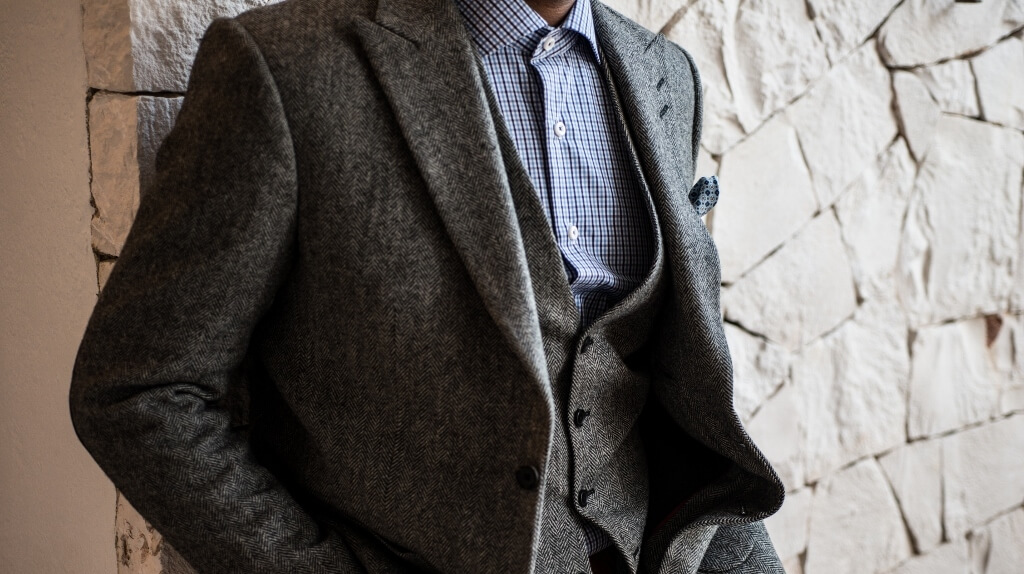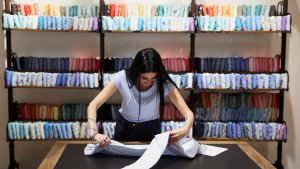Owner of bespoke tailoring brand, Roberto Revilla London
View Author ProfileFacebook boss Mark Zuckerberg says he wears the same casual clothes every day because it allows him to focus on more important decisions at work. But is attire really a factor in work productivity?
Opinions
Do Smart Clothes Make You More Productive?
Facebook boss Mark Zuckerberg says he wears the same casual clothes every day because it allows him to focus on more important decisions at work. But is attire really a factor in work productivity?

Let’s face it, with a net worth at the time of writing of over $46 billion dollars, Mark Zuckerberg can pretty much wear and do whatever he wants at the office.
But what Mark is saying is exactly the same as one of my own clients having a line-up of 10 dark navy and grey suits in the wardrobe - when faced with a working day of 1,000s of decisions ahead, why add any more choices unnecessarily?
But looking at the question asked, “Is attire really a factor in work productivity?”, it’s not completely connected to Mark’s stance, which is actually about decision-making BEFORE he gets to the office, whereas the question posed could be rephrased as, “Does what you wear to the office have an impact on work productivity?”
I work with a large number of high profile individuals and titans of industry here in London and they would largely argue that yes, it does.
Dress Down Fridays are noted by many of those same business leaders as being the least productive day of the week. Office environments where they have gone dress-casual all week are interesting because on one hand you’ll have the younger generation of employees who will embrace and come to work wearing all sorts of wonderful concoctions (many questionable).
On the other hand however, many senior staff will revert back to wearing a suit, shirt and (in the case of the most senior) a tie because:
- It’s just damn easier than trying to keep up with the ever-changing fashion parade.
- It’s far more professional especially when the majority of people/clients they will be meeting may NOT be dressed down.
- They’ve been used to dressing this way for years so doing anything suddenly out of habit takes time and becomes an irritation.
- Reverting to a dress down code means going shopping which most men loathe.
- Like Mark, it means making a lot of unnecessary decisions before starting your day.
All of this put together can really have a negative impact on productivity: one of the banks I work in has switched to dress down and it's highly amusing as they actually issued a guideline for what was and wasn’t acceptable. Of course this is completely flaunted by the younger generation of workers and many of the traders.
These guys and gals are then frowned upon by their senior peers which leads to a hotbed of a frustrated workplace that should really be 100% focused on helping keep our economy/markets going. Or whatever the hell it is that they do.
When you dress for work, you work. When you dress casual like you would on a day off that has to have an impact on your focus during a working day.
I observe clients carefully especially when helping those who have been used to "dressing down" (usually they have actually been trying to wear a suit but they may as well have been going to work in their pyjamas) transition to wearing a suit and looking "the Business". Their suit fitting is an amazing thing because the change in their attitude and posture is immense.
Studies have shown that what you wear affects the characteristics you assume for the period you wear that particular outfit. So, wearing a suit you focus on work, wear gym clothes and you feel more sporty, wear a dinner suit and it starts the James Bond theme playing in your head and you think your Audi is actually an Aston Martin (seriously).
Wear jeans, a pair of Converse and a sweater to the office and your mind is halfway to the pub. And thinks it's nearly the weekend when it's actually Monday morning.
At the same time we do have to recognise that what is formal in one workplace or industry is considered overkill or downright inappropriate in another. I would not expect to walk into a web agency and see everyone wearing a full shirt and tie (though with the reputation that some web agencies have maybe they should and then they'd do some actually work that matches the retainers they get paid).
Similarly the last thing I would expect to see when walking into a wealth management firm is a bunch of Sloppy Joe's. The picture below is a great transition from casual to formal - which fits best with your firm's identity and your own personal brand?
So in conclusion I’d argue that generally-speaking, what you wear to the office definitely has some impact on productivity - as one of my CEOs so eloquently puts it: “When I’m at the office I’m here to conduct business and look like I mean business, when I’m at home with the kids or at the rugby it’s a different matter, but I never mix the two and therefore my business and casual wardrobes don’t mix either.”
But it does depend on what you do, what your company is trying to promote to the world and what you want others to see when they are deciding whether or not to do business with you.
Roberto Revilla is owner of bespoke, luxury tailor www.robertorevillalondon.com.
Most read in Opinions
Trending articles on Opinions
Top articles on Minutehack
Thanks for signing up to Minutehack alerts.
Brilliant editorials heading your way soon.
Okay, Thanks!




